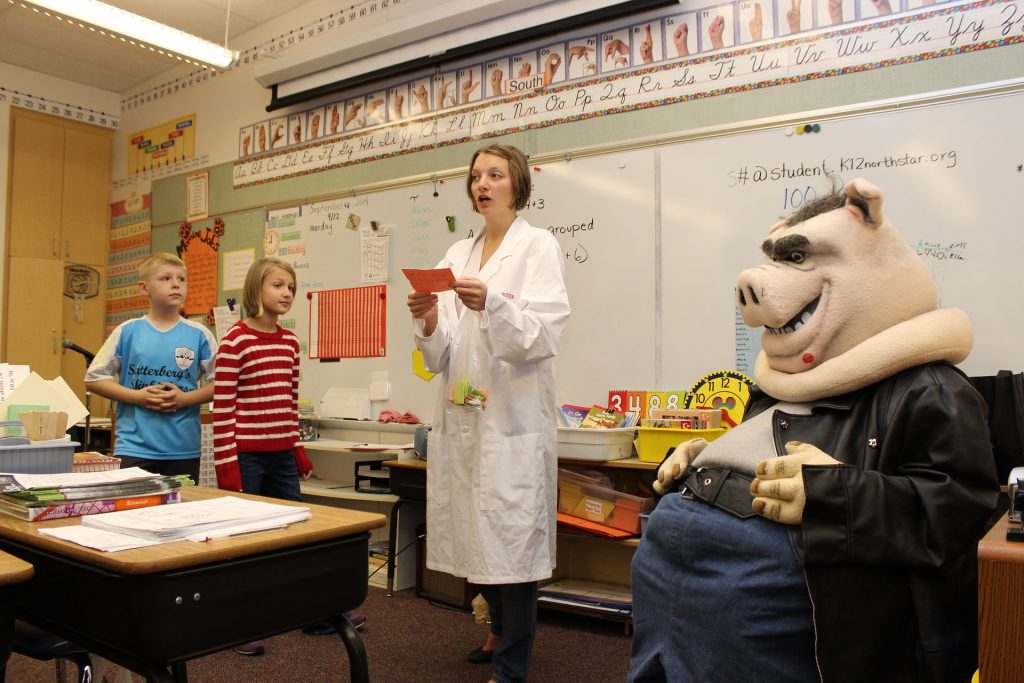The growing disproportionality between the number of PhD graduates in the US and the number of vacancies in academic jobs has paved the way for a new kind of academic: the freelance scientist. In fact, some researchers have continued pursuing 6 to 10 post-doc jobs after their PhD degrees, without any signs of stability. These concerns reached the brink during 2014-15 when the number of fresh doctoral degree holders was exactly twice as much as it was during the early 2000s. Along with talented researchers opting out of science and establishing “startups” on their own, a massive number of PhD qualified scientists took the freelancing path. The reasons that spurred this massive revolution also included geographical constraints, bias towards established researchers and funding challenges. Ultimately, it boiled down to the question whether external constraints such as funding and opportunities could disrupt the speed of scientific development. Luckily, the answer to that has been retained as a positive, by freelance scientists — scientists who are able to offer their services to those who need them, on demand, and irrespective of institutional support. Here are five reasons businesses should hire freelance scientists.
1. They’re brilliant at time management

An independent researcher’s biggest resource is time. Every hour of the day requires effective utilization for any freelancer and for freelancing researchers, the emphasis is even greater. They require maintaining an hourly schedule that allocates time according to the different functions performed in a typical workday. One hour for client discussions, one hour for new project proposals, two hours for checking reports etc. – every task has to be designated with the exact dedicated time to complete it.
In addition, the freelance scientist’s daily schedule has got to have different layers of time management almost going down to every minute of the day. This is because scientists don’t just work on computer systems; they need to collect samples, sometimes they require interviewing people, or they might even require hours or days to test a hypothesis. These tasks cannot be quantified into hourly schedules, they can take up indefinite time stamps that affect other tasks, and more importantly, deadlines. So, freelance scientists require 120% more focus and dedication than conventional scientists in order to complete their projects on time. And let’s not forget that freelance scientists most often work out of a rented office space, so if they’re taking more time than scheduled, they are only increasing their own expenses. Well, time management skills have been emphasized enough for full-time professionals, but they assume far greater significance when considering the task-space of a freelance scientist. Next time you heard a scientist saying time is money, trust him to be a freelancing one!
2. They can be impeccable communicators
While many would agree that communication skills are a big part of making or breaking professional success, for freelance scientists, communication develops a whole new meaning. They’ve got to create opportunities, they’ve got to market themselves, they have to negotiate rates for projects, they’ve got to deliver world-changing results and then, they’re going to publish papers as well. Plus, let’s not forget the significance of research citations and conference presentations. Every single action, task, or agenda requires them to up their communication skills. Conventional scientists can earn a reputation among their peers through moderate communication skills, but freelance scientists would be risking their road ahead if they cannot communicate well enough. Moreover, many freelance scientists end up making alternative careers as science communicators alone. So the need for fantastic communication skills, both verbal and written, is pretty much like bread and butter for freelance scientists.
3. They are accountants as well
Businesses hire accountants to check budgets, payments and all other types of expenses. But freelancers require doing these tasks mostly on their own unless they’ve grown to a certain extent and hired subcontractors to carry out these seemingly tiny, yet absolutely essential tasks. A freelance scientist should be able to account the time required to complete projects, decide hourly rates for them, check the overhead expenses required for sampling data, track software usage costs, server renting costs, office accommodation and running expenses and so many other costs, all on a regular basis. This means, they’re either going to sit with their registers once a day or if they’re lucky, once or twice a week. But accounting is a very significant task that comes with freelancing and there’s no second way around it. While on one side, regular accounting helps understand how financially sustainable you are as a freelance scientist, the downside is, if you hate it, you’ll never really be able to make the most of the available resources. A big challenge of going solo is managing finances and freelance scientists require mastering it even before thinking about increasing their clientele.
4. They have great networking skills
Networking skills occupy a large share of a freelance scientist’s credentials even more than the number of post-doc positions they’ve had. Building a strong reliable network of like-minded professionals helps to get new projects, builds trust towards clients and also aids in the process of publishing findings in high-impact journals.
Often times, freelance scientists face challenges with securing funds from government agencies and this impacts the overall workflow. Support from institutional peers, former mentors and well-meaning colleagues in associated disciplines are instrumental in the long road that the freelancing researchers take. Networking is a two-way street — sometimes freelance scientists establish strong connections with perfection in their work and occasionally, great testimonials or recommendations fetch more work for freelance scientists, much like conventional freelancers do. Freelance scientists have additional mandates such as increasing research citations and conference presentations too that require extremely positive networking skills to materialize.
5. Multitasking: They wear far too many hats at once!
The strongest qualities that freelance scientists are associated with are their abilities to multitask during their tenures as well as the additional skills they hone themselves into, for making it big. Freelance scientists just don’t stick to being scientific innovators, they’re studying new statistics software, or they’re even studying citizen surveys on the internet. In short, the career span of freelance scientists stops at nothing.
Freelance scientists are often compared to entrepreneurs because of their abilities to master multidisciplinary skills, manage different kinds of people they work with, the variety of industries they serve and the top-notch analysis and technological insights they provide on an everyday basis. These days it’s not hard to find freelance scientists that are perfectionists in their own field of work as well as developing quick proficiencies in other far-reaching domains as well. Freelance scientists are explorers, marketers, writers, editors, negotiators, all packed into one. They would be exploring novel data visualization tools one day and could be writing books the next day, but what they mostly are not, is stoppable.
For every challenge that pervades the career path of a scientist, the complexity compounds multi-fold in the path of a freelance scientist. But haven’t we all heard the adage, when the going gets tough, the tough get going. That stands at every step that a freelance scientist takes towards a successful career. The bright side is, more and more freelance scientists are coming up, they’re building non-profit communities and support systems on their own and guiding each other towards greater successes, individually and as a whole. While they explore different geographies, time-zones, battle interpersonal relationships and live parallel timelines, they’re worth a room full of applause, for they have pioneered a non-traditional way of continuing research and continually prospering in it.
—————
Looking to work with a freelance scientist? Post your project on Kolabtree and work with PhD-qualified experts from MIT, Cambridge, Stanford, Oxford, and more.








